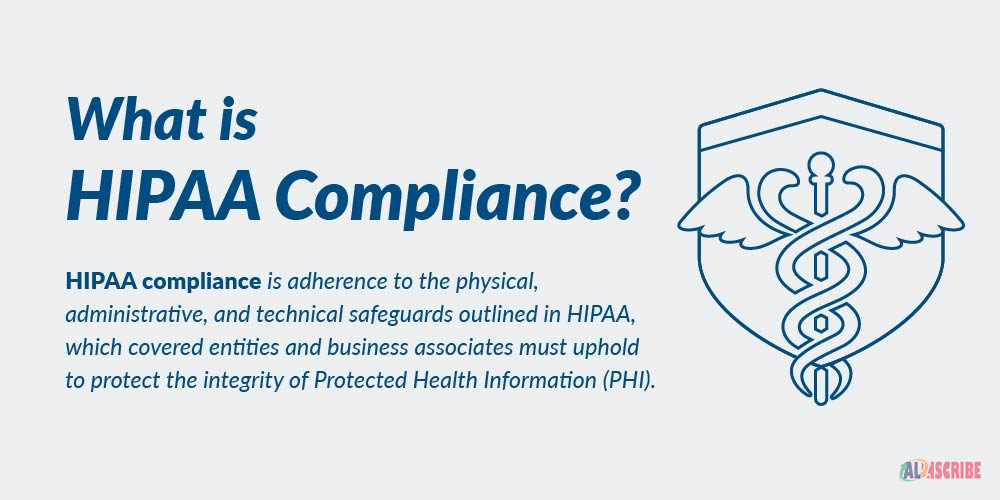Role Of Healthcare ERP Software In Healthcare Business

There have been several attempts to improve the healthcare system and the role of information technology is also increasing in the pursuit of various solutions to combat the healthcare sector issues. Healthcare providers such as doctors, physicians, and medical consultants can no longer completely rely on the knowledge and prudence required for professional practice. They need to find ways to organize and influence learning and decision-making within practices to achieve overall health. Hospitals have been transforming their organizational structures and it is recommended to have a central planning and control system in place to manage the transformation and related processes.
The answer to this dilemma is Healthcare ERP Software that is customized for healthcare delivery organizations. ERP systems are software packages that help to view the entire organization’s information and have the power to influence business operations. They are enterprise applications that aim to provide single integrated software to handle numerous corporate functions that comprise finance and account, human resources, manufacturing, procurement, inventory management, and sales and distribution. Healthcare ERP software if implemented successfully in healthcare and medical organizations, then they would promote significant changes in certain areas like patient management, finance, revenue and admission resources, administration, and many more. This article explains the purpose of healthcare ERP software for Healthcare Organizations, its features, and the benefits that can be derived from Healthcare ERP software. However, healthcare environments face various challenges in implementing healthcare ERP Software, thus we will also learn about the challenges such as the rising costs of healthcare services. Further, we will get to know how the onset of Covid-19 highlighted the importance of ERP solutions for hospitals. Stay tuned!
Importance of Healthcare ERP Software:

Clinicians, doctors, physicians, nurses, and medical supervisors need a quality tool that helps improve and cope with emerging medical technologies and know-how in order to maintain quality healthcare services. Formerly, the healthcare sector took the advantage of information technology for just billing and accounting, nevertheless, the application has been extended to complex areas such as reducing costs, promoting efficiency, managing and caring for patients, and keeping track of inventory and supply chains.
Healthcare organizations rely on information from different entities and sources to execute obligations and duties such as physician’s diagnoses, and patients’ chronic care. Therefore, there is a need for the integration of different services, processes, and information that would benefit healthcare organizations and eradicate the time-honored tradition of segregated processes that results in the reduced sharing of information. Integrated systems like healthcare ERP software would allow hospitals and medical institutions to coordinate management and ensure the efficiency of healthcare provided to patients.
Implementation of Healthcare ERP software not only guides them toward increasing efficiency and productivity but also helps them accomplish operational precision across departments. With a robust and customized ERP solution in place, hospitals and medical centers are better positioned to improve workflows owing to reduced laborious tasks and human errors. Healthcare ERP software also helps to facilitate the administration of their services present at different locations, as well as access medical information that is critical to the health fraternity. Hospitals are those places that strongly demand real-time and faultless information. Thus, ERP Software for Healthcare Organizations provides greater visibility to the database and can have a tremendous positive impact through and through.
Features of Healthcare ERP Software:
1. Inventory Management:
Inventory in hospitals constitute of various kinds of medical supplies such as masks, swabs and syringes, expensive implants and surgical kits, cotton, etc. A well-implemented Healthcare ERP software makes it simpler to monitor the inventory. ERP system helps clinicians to keep track of medicine, medical reports, equipment, and workflows. Medical products are higher-value consumables that make up the lion’s share of the hospital’s budget, thus trailing the medical inventory is vital for efficient financial management.
2. Financial Management and Accounting:
The universal feature of healthcare ERP software is financial management because an organization needs to monitor the financial data coming from various departments to ensure informed decision-making. An integrated system helps them gather all the financial reports and information in the database, making it easier for managers to analyze. It makes the allocation of amounts, managing payments, and planning budgets quite simpler.
The accounting module of ERP systems allow to efficiently and effectively manage cashflows, assign financial resources for different purposes like raw material procurement, marketing campaigns, employee salaries, and various other operational expenses. In a nutshell-
- You can use ERP systems for capital requirements projection and cash management
- Sketch out budgets precisely
- Divide up costs for diverse activities
- Effectually manage payments made to suppliers, employees, and others
3. Staff and Doctor Management:
This feature of Healthcare ERP software helps manage leave management, appointment schedules, payroll, and doctor check-in schedule. An ERP facilitates healthcare administration to gain unobstructed insights into hiring procedures and formalities, bonuses, employee benefits, and overtime.
4. Pharmacy Management:

Today, nearly all hospitals have pharmacies sited within their premises. This particular module helps in purchasing drugs and medications, keeping an exact record of the purchased drugs, and assisting medical experts throughout their research programs.
5. Appointments and Patients Tracking:
This feature includes registration of new patients, managing visits and appointments scheduling, patients discharged, and payments. This patient management module of healthcare ERP software helps from cradle to grave, from storing confidential patient data electronically to billing and payment.
6. Nursing and Wards Management:
This management module provides the windows to the nursing staff by allowing them to monitor all the wards on the same floor. Special units like OT (Operation Theatre) and ICU (Intensive Care Unit) are effectually managed where one can track all the services offered to the patients connecting their respective wards. Nursing and Wards Management provides integration between departmental functions of administrative and clinical systems of a hospital to check whether they are functioning properly or not.
7. HIPAA Compliance:

Business compliance is fundamental to the operations of any company, and if we talk about healthcare organizations, compliances can become even more stringent. According to industry standards, every healthcare provider has to comply with HIPAA (Health Insurance Portability and Accountability Act) rules and regulations. Healthcare ERP software helps managers and owners to prepare the required documentation beforehand and automated updates can assist companies to be in line with severe and mandatory regulatory compliances.
When all the business units in the hospitals operate in harmony and sync, they are strategically accommodated to attain a higher level of patient care and satisfaction, and better patient gratification is correlated with higher profitability.
Let’s move towards learning what potential benefits hospitals can reap from the implementation of Healthcare ERP Software.
Benefits of Healthcare ERP Software:
1. Proper Maintenance of Medical Records:
In the current scenario, accessing patients’ records is just a few clicks away and when you have an adequate healthcare ERP software package catering to your needs, you need not worry. There is a tendency where patients call up hospitals to find out whether the doctor is available at the moment, or if their medical issues can be considered by the concerned specialist. Therefore, the reception or the help desk of the hospitals must provide them with the information with utmost precision. It cannot be overlooked that constant admission of patients during the Covid-19 times pressurized the hospital staff. An automated system can be utilized to understand and cater to the needs of patients who need immediate attention and care.
2. Business Automation:
Even hospitals and healthcare businesses need to assess their financial performance just like any other organization in a different industry. Data entered into the system by one department is accessible to all the authorized entities in the hospital. Everything is placed securely under one centralized database. This paves the path for speedy and enlightened decisions and replaces the aggravations of paper-based tedious mechanisms.
3. Slashes Operational Costs:
Reduced operating costs have become the need of the hour to keep up and running a lean and efficient organization. Healthcare ERP software helps to keep operational costs low while delivering excellent medical care. Automation in one way helps the staff to spare the manual and laborious tasks in their respective departments. Automated functions replace manual tasks thus, reduce the risks of costly errors across the business organization. This complete process enhances productivity and hence cuts down operational costs.
4. Upgraded Patient Safety and Satisfaction:
Centralized database helps doctors and medical experts to extract information about patient’s ailment, their historical data, underlying conditions, any allergies, prescribed drugs, etc. by just feeding unique patient IDs. Healthcare ERP software makes data readily available so that doctors can get an update about the patient and take further steps in the treatment.
5. Compliance Made Easy:
ERP systems can be really helpful when it comes to abiding by the regulatory compliances of the healthcare sector. HIPAA compliances ensure enhanced patient safety and heightened security of patient records. Healthcare ERP Software for Healthcare Organizations makes it easy to get your requisite documents at the time of need, regardless of the location.
The purpose of HIPAA is to secure the PHI (Protection of Health Information), restrict the disclosure of health information of patients, and let the patients access their health-related information on request. The reason behind storing electronic data on an ERP system is to provide better service and care, improve workflows, quicker diagnoses, and subsequent treatments of the patients.
6. Improved Cybersecurity:
ERP solutions prove to be quite beneficial when it comes to keeping sensitive and confidential patient data from falling prey to cyberbullies and preventing it from being misused or going into the wrong hands. It can handle data security truly well by using best practices for data security, risk management, cyberattacks prevention and control, and protocols for security improvement.
7. Efficiency in Supply Chain Management:

Supply chain management in the healthcare industry refers to the synchronized flow of medical goods and services from manufacturers to patients. This is a backend activity that facilitates the proper functioning of business processes. ERP system helps to get a firm grip over your supply chain and order placement in advance. You must have clear visibility in order to better predict what your patients would need and when. Furthermore, the suppliers can be informed about the orders ahead of time.
8. Business Intelligence and Strategic Planning:
The term Business Intelligence means technologies, applications, and practices for the integration, analysis, and presentation of enhanced business information. The term is used to describe the intelligence within which your ERP operates. ERP business intelligence helps you to receive correct financial information to estimate the performance of the various departments of the hospital.
Covid-19 on highlighting the importance of Healthcare ERP Systems:
Covid-19 has challenged the functioning of global healthcare systems. It has taught a valuable lesson to the healthcare sector, making them realize why an integrated and enhanced ERP system is the need of the hour!
In other words, the pandemic had a severe impact on the supply chain of hospitals, where on one hand there were soaring demands for medical kits, masks, beds, antivirus vaccines, PPE (Personal Protection Equipment) kits, and so on and on other hand manufacturing units went through a dreadful phase where they kept struggling to keep up with the pace. The pandemic burdened the labor force and disrupted the supply chain and demand cycles.
Witnessing the disaster with the naked eye, the doctors, healthcare specialists, investors, hospital admins, and trustees, diverted their attention to newer and innovative technologies that allow them to be well-equipped for future contingencies. During the course of this virulent disease, many hospitals decided to go live with their ERP. For example, there is a healthcare institution named CentraCare in the US that chose to go live with Oracle Cloud ERP.
Amidst the digital transformation trend, 58% of software developers have already integrated AI into their healthcare ERP software. AI-enabled ERP systems help in advanced data processing, forecasting, warehouse management, performance evaluation, and financial management.
Doctors are treated as a boon for the well-being of patients and healthcare ERP Software with multiple essential healthcare modules is considered a fortunate thing for healthcare professionals. Thus, healthcare ERP Software propels the financial growth of hospital administration while building valuable trust.
Article Comments
Similar Articles
Articles Search
Sponsor
There are zero sub-categories in this parent category.
There are zero sub-categories in this parent category.
There are zero sub-categories in this parent category.
















